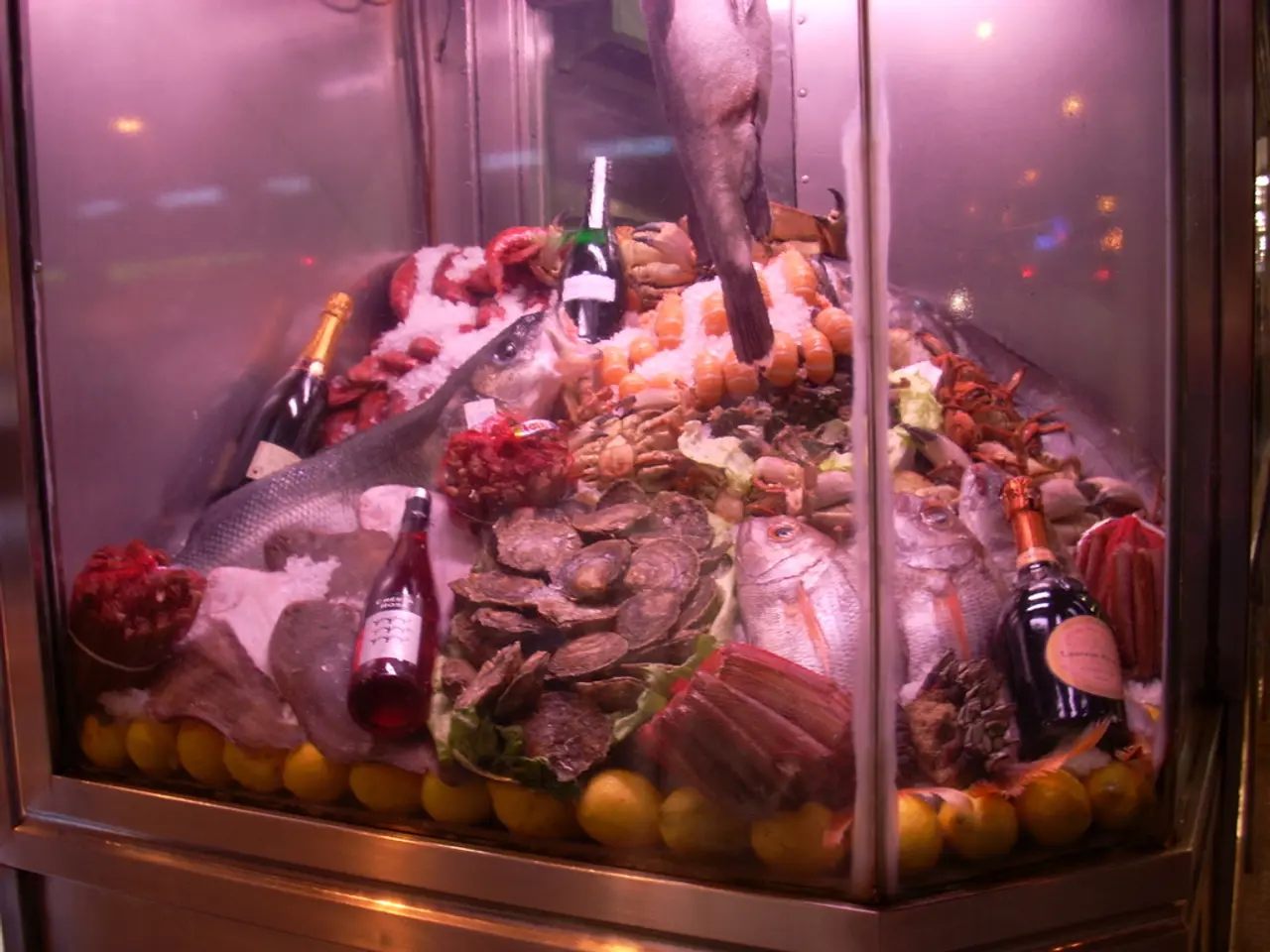Brits discard 86,000 whole lettuces daily: tips for eating sustainably and reducing waste
Sustainable Shopping: Making Mindful Choices for a Greener UK
In the pursuit of a greener and more sustainable future, consumers in the UK have a significant role to play in the food industry. By making conscious choices when grocery shopping, individuals can support sustainable meat and vegetable sourcing, reduce food-related greenhouse gas emissions, and contribute to a healthier planet.
One of the key aspects of sustainable shopping is buying certified sustainable produce. Look for the LEAF marque on fresh vegetables, which indicates environmentally responsible farming. Other certifications to look out for include Pasture For Life, a organization that promotes soil health and reduces artificial inputs in grass-fed sources.
Another important consideration is choosing meat from regenerative farming systems. Opt for wild venison, a lean, omega-rich, and locally abundant source often from deer populations impacting ecosystems, available via specialist outlets. For 100% grass-fed beef and lamb, seek out meat certified by Pasture For Life.
Reducing overall meat consumption is also crucial. Replacing some meat intake with plant-based proteins or plant-based meat alternatives can lower greenhouse gas emissions and improve diet quality without drastic diet changes.
Minimizing vegetable waste is equally essential. Buy thoughtfully and avoid over-purchasing whole produce like lettuce, which has high discard rates in the UK.
The UK government's pledge to achieve net-zero emissions includes a plan to eat 35% less meat by 2050. Consumers can support this goal by exploring alternatives to farmed red meat, such as wild Pacific sockeye salmon and Arctic char.
Consumer choice is powerful in promoting sustainability, but it can be challenging to navigate competing priorities. The Soil Association suggests a return to slower-growing breeds that eat a lower-protein diet, such as homegrown peas, beans, and even soy.
Buying directly from farm shops allows consumers to see how livestock is reared and what it grazes on. This approach aligns with national efforts to improve health via sustainable diets emphasizing plant-based, fibre-rich foods alongside moderate animal protein.
Individuals can also support local farmers by prioritizing locally and seasonally grown produce whenever possible. For instance, buy soft fruit, picked ripe, from a good local place for the best taste and sustainability.
Lastly, it's important to remember that sustainable shopping extends beyond the grocery store. The High Seas Treaty to protect 30% of the world's seas by 2030 was ratified by 50 states; 10 more are needed to bring it into force. Supporting initiatives like this can help ensure a more sustainable future for our oceans and the wildlife within them.
By combining certified sustainable choices, supporting organic and regenerative producers, experimenting with alternative proteins, and reducing waste, UK consumers can make a meaningful impact on the sustainability of meat and vegetable sourcing when grocery shopping.
- In addition to grocery shopping, consider investing in certified sustainable products from a farm shop for your home and garden.
- As part of sustainable living, embrace healthy cooking methods and learn about environmental science to reduce your carbon footprint in the kitchen.
- Embrace the lifestyle trend of fashion-and-beauty brands promoting eco-friendly materials and sustainable manufacturing practices.
- When dining out, opt for restaurants that prioritize sustainable food-and-drink options and green initiatives in their operations.
- Support the education-and-self-development sector by enrolling in online courses about climate-change and its impact on the environment.
- Make mindfulness a part of your personal-growth journey by adopting practices that promote self-awareness and compassion for the planet.
- Seek out communities or communities of practice online for lifelong learning and skills-training in sustainable living and healthy-cooking.
- Travel responsibly by choosing adventure-travel, cultural-travel, or budget-travel options that prioritize eco-tourism and conserving natural resources.
- If you're searching for a new career, consider positions in fields like renewable energy, sustainability consulting, or conservation, contributing to a greener future.
- Electrical vehicles (EVs) contribute to a greener UK and can be more cost-effective over time, making them worth considering as an alternative to fuel-powered cars.
- To ensure the longevity of your EV, prioritize car-maintenance and learn about efficient driving techniques to maximize battery life and minimize emissions.
- Don't forget to prioritize your mental well-being along with your physical health; take regular breaks for mindfulness exercises and goal-setting to maintain productivity and career-development.
- Participate in sports like football as a way to improve your physical fitness and learn about European leagues, promoting a sense of cultural connection and camaraderie.
- Incorporate sustainable living into your lifestyle by shopping for deals-and-discounts on eco-friendly products and exploring energy-saving solutions for your home.
- Support education and research on climate-change and its effects on the environment by donating to reputable organizations or participating in fundraising initiatives.
- Encourage local schools and educational institutions to incorporate sustainability and lifelong learning opportunities into their curriculum for the next generation.
- Be an advocate for a greener UK by sharing your findings, experiences, and personal journey towards sustainable living with others, inspiring them to make a positive impact on the environment as well.






